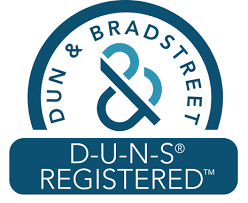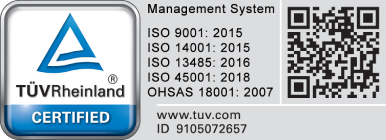New technologies are enabling revolutionary capabilities for cars and their drivers. These technologies and associated applications are improving private and fleet transport by integrating autonomous systems, wireless connectivity and a slew of sensors to make driving more efficient, safe and comfortable. Here’s what’s coming in 2019 and beyond.
Enhanced Driver Vision Systems
Cameras on cars may not be new but they are being used in new ways. When displayed on a rear view mirror or a separate monitor, camera systems help the driver see the world around the vehicle with unprecedented clarity.

360° cameras are becoming common even in mid-range vehicles. Taking video feeds from many surrounding cameras, a smart computer algorithm then makes a composite image as if from above the car. This is ideal for negotiating tight parking lots to avoid fender benders or to help negotiate pedestrian traffic.
We already have rear view cameras to assist in parking or backing up, but now there is a production system that lets you look “through” a trailer.

The massive GMC Denali pick-up truck can haul an even more massive trailer that might add 30’ or more to the vehicle length – a real driving challenge. Using 15 individual cameras on both sides of the trailer, as well as the top and the back, the Denali system projects an image that helps the driver see the view from the rear as if the trailer wasn’t there.
Autonomous Driving
We don’t have fully driver-less vehicles yet and won’t for a few years. But there are a number of integrated systems that are able to handle many driving functions automatically or with minimal driver input.
For example, cruise control is not new but it’s relatively static – set it once and the car maintains a constant speed. But what if the traffic in front of you keeps changing speeds?

Adaptive cruise control uses radar and other sensors to monitor vehicles in front and to the sides, modulating braking and acceleration to maintain a safe and consistent spacing. Even if the car comes to a complete stop – say due to road construction – advanced systems can then restart your car and resume the pre-set cruise speed when conditions allow, all without touching the pedals.
Using similar sensor arrays, steering avoidance systems from Volvo, Lexus and others can take control of the wheel to avoid objects appearing ahead, and will also bring that car back into its lane if it starts to wander.
Connectivity and Mobility

Cars often function as mobile entertainment platforms for drivers and passengers. Apps like CarPlay from Apple and Android Auto from Google let drivers connect their phones to the car’s infotainment system, overriding the default menu layout and instead substituting the user’s preferred menu interface. This level of customization can also work with some diagnostic and information readouts on virtual dashboards and heads-up displays.

Car manufacturers are creating other smartphone apps, from which you can perform a variety of remote functions: start the car, honk the horn, flash the lights, turn on the heater, remote lock/unlock, check fuel levels and more. There are even apps that track your car when someone else is driving, to monitor their speed, destination and even the volume of music! Great for concerned parents who want to make sure their teen children get home safely.
How Can Star Rapid Help You?
We are experts at making rapid prototypes and volume production to support the development of new automotive product solutions. We work with some of the world’s largest automotive and accessory suppliers to provide custom CNC machining, pressure die casting and plastic injection molding services within the shortest possible lead times. This is essential when meeting the needs of such a dynamically changing industry. Find out more about how we can be your strategic partner when you send us your CAD files for a quotation.

